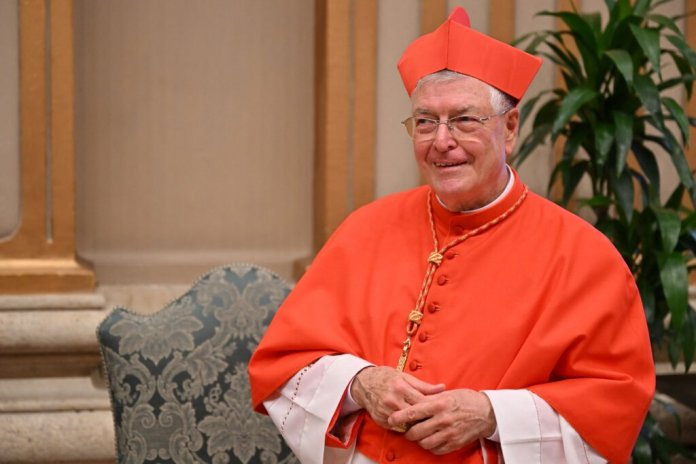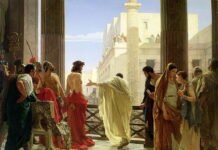Few things cause Catholics more excitement than a papal conclave.
So when it was reported by the eminently respectable website The Pillar, and then by regular Herald contributor and Vatican veteran Diane Montagna, writing for The Remnant, that the Pope has charged his senior canon lawyer, Cardinal Gianfranco Ghirlanda, to develop draft revisions to the papal election process, it produced some ripples of serious interest among observers.
It was asserted that, according to reports, Cardinal Ghirlanda has been asked to develop possible amendments to Universi dominici gregis, Pope St John Paul II’s 1996 apostolic constitution governing the events surrounding the death of a pope, and the election of his successor.
It was claimed that there were two key reforms under consideration for the papal election process. Both have to do with the “general congregations” of cardinals which precede the voting process for a new pope.
One was to replace speeches made at the conclave with round table encounter groups lifted from the practice at the recent Synod. There would be reports of the collective discussion from the tables instead of speeches. This of course, is a familiar bureaucratic manoeuvre designed to give the organisers of any conference or meeting control to mute individuals who might otherwise be over-influential at such an event. It’s a well worn control mechanism.
The other was to examine the addition of a certain number of appointed laypeople with voting rights to the body of Cardinals. This would have the cosmetic attraction of appearing to replicate patterns of the earlier Church, and diminish the “stranglehold of clericalism” which might please those disinclined to value hierarchies and elderly (or experienced, depending on your politics) men.
No sooner had both The Pillar and Remnant TV reported on this dramatic development, and their supporters fainted with either excitement or outrage (depending again on their politics) than Cardinal Ghirlanda appeared in the media to deny he had been approached by the pope for any such task.
And yet The Pillar, which is a highly reputable outlet, stood by its story. Most of The Pillar’s account centres on the widely-spread rumours of reforms to the papal conclave already current and much shared throughout Rome.
The conundrum, which has already excited the imaginations of those unhelpfully vulnerable to the possibility of conspiracies is most easily solved by believing Cardinal Ghirlanda and at the same time recognising that there may well exist, in the pipeline, a strategy, as yet unimplemented, to shift the balance of voting power in the next conclave.
All this depends on the view one takes of Pope Francis’s reforms.
Some see the Synod on Synodality as a gentle exploration of lay vocation, intended to dilute clericalism and open the windows of the Church to the gentle zephyrs of the wandering spirit.
Others see it as part of a strategy to change the very nature of the Church by engineering a pressure group to act as an engine of change by mimicking popular consultation and producing a new and very different mind of the Church (sensus fidei).
But to what end? The signals are not clear. Amongst the traditionalists there was anxiety that the Pope had bought into the whole progressive agenda, but was moving slowly and carefully. Two characteristics continually colour the direction of the present pontificate – ambiguity and the slow but perceptible dilution of the Church’s teaching on continence and chastity outside marriage.
On the 9 November a response to dubia submitted by Bishop Jose Negro, of the diocese of Santo Amaro in Brazil, caused further consternation. There Cardinal Fernández of the DDF gave answers, later confirmed by the Pope, relating to pastoral guidance for same-sex attracted couples and transgender persons. Once again, given an opportunity to restate the Church’s well honed and treasured teaching on sexuality, that so many Catholics have sacrificed so much in their attempts to live it out, Cardinal Fernández offered hesitant ambiguity.
Of the six questions posed, one of the more important related to homosexual couples presenting a child for baptism. What would the context be? The child of course would not be the natural child of both adults, but would in all likelihood have been procured by surrogacy. The two adults would not be likely to be living chaste lives outside heterosexual marriage.
The obvious answer to the dubia would be ask to what extent in such compromised circumstances it would be likely that the requirements of the Catechism could be faithful followed with integrity. Canon 686 requires a well-founded hope that the child would be educated in the Catholic religion and if not the baptism must be delayed.
Cardinal Fernández did not contradict the catechism. He simply restated it in a way that allowed the assumption that they might be able to do that. He did not explain how that was likely without some act of repudiation of the homosexual lifestyle. Nor did he address the problems of surrogate children, purchased by gay couples to enhance the credentials of their life style, being denied their rights to have access to both of their biological parents.
The question of whether or not a transgendered person could adequately act as a godparent also formed part of the dubia. The Catechism expects a godparent to lead a life of faith in keeping with the function they take on. The question as to the extent a godparent suffering from gender dysphoria can be claiming to be doing that, is at the very least, problematic.
Cardinal Fernández adjudicated that there were in fact certain circumstances in which this might be achieved, though it could also be problematic. But there was no guidance as to what criteria might be considered problematic.
Meanwhile Cardinal Robert Sarah, less than a month after he was one of a number of cardinals who had unsuccessfully posed a series of dubia to the Pope, spoke of his distress following the October Synod and the further uncertainty that it had sown.
On 26 October, speaking at the launch of Bishop Athanasius Schneider’s new book, Credo, he warned that the Church had entered a new phase one might call “the crisis of the Magisterium…. A time of confusion, ambiguity and apostasy. Great disorientation, deep bewilderment and devastating uncertainties have been inoculated in the souls of many Christian believers.”
In this crisis of faith over whether or not the Catholic Church will be true to itself or find itself the victim of a credal coup at the hands of the Pope’s appointees, the stakes could not be higher.
Everyone recognises that the fate of the Church, and perhaps the remnants of Christian culture, depends on whether or not the present pope can work behind the scenes to do what he can to guarantee one of his protégés carry on and develop his theological idiosyncrasies.
In a saner and more trustworthy culture, the word of Cardinal Ghirlanda would be sacrosanct. But The Pillar is not backing down.
“Of course we stand by our original reporting. We don’t break a story like that unless we have multiple, reliable, independent sources telling us the same thing. And from what we’re hearing, there’s an almighty ruckus going on in at least one Vatican department trying to find who leaked the information to us. Of course that would be an odd reaction if there was nothing to leak in the first place.”



